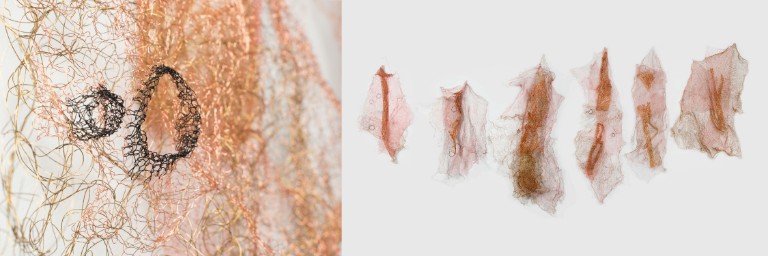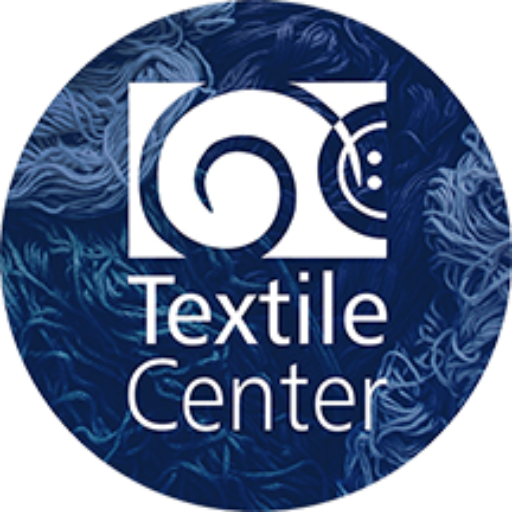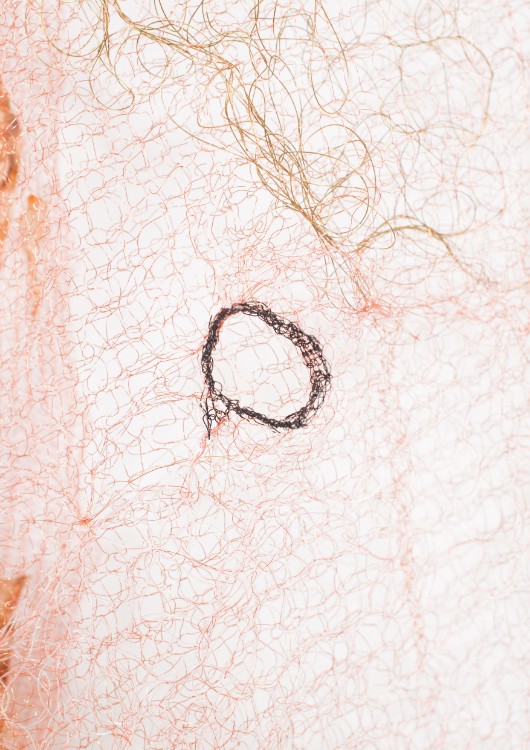
Entrapment and Transformation/The Lost Chapters, Carolyn Halliday & Leslie Schwartz
Thursday, April 25, 2019 • 12 – 1 pm • FREE • Located in Textile Center’s Auditorium
Copies of The Lost Chapters will be available for purchase and autographing.
A Dialogue with Artist Carolyn Halliday & Author Leslie Schwartz
Carolyn Halliday met Leslie Schwartz at an artist residency in Vermont where they quickly resonated with each other’s energy and work. Both an artist and psychologist, Halliday’s response to Schwartz’ compelling story inspired her to create work that speaks to the universal quest for adaptation for the purpose of survival–what Halliday believes is at the heart of all evolution. As Halliday manipulated wire for the work, she was building from the sense of entrapment, scarring, healing, journey, relationship, and redemption that flows throughout The Lost Chapters.
Schwartz says her book The Lost Chapters is, “not your typical drunkalogue addiction story. This book is about courage and community. It’s about the life-saving quality of literature, and the way books bring us together. I think it’s also a story about transformation – which is such a cliché – but what I’m talking about is the willingness to expose your vulnerability to the world, and to yourself, so you can locate and express your power.”
Halliday created a series of five works called Entrapment and Transformation in specific response to Schwartz’s deeply personal experience. This Art Speaks presentation reveals how one author’s story inspired a new body of work by a visual artist, and how their friendship and conversations formed the conceptual basis of this work. The series of pieces will be installed for viewing as a backdrop for their dialogue and presentation during the event.
About Artist Carolyn Halliday & Her Work
Carolyn Halliday uses the vocabulary of textiles to create sculptural forms that often reference body or nature. Hand knitting recycled wire and other nontraditional materials is her primary technique, although other needlework and fiber skills art are incorporated into her work. The work emerges from her intuitive and visceral response to the materials, and from the ways that the natural world provides metaphors for human existence. Her conceptual interests are often influenced by conversations, particularly around the relationship between ecological research, concepts of evolutionary biology, and environmental crises. The poetic language of science and evolutionary biology during these discussions often ignites her work. She maintains a studio practice in Minneapolis.
Arriving and parking:
• We are located across the street from the Prospect Park Green Line light rail stop
• Parking is available in the lot directly behind Textile Center at 3000 University Ave SE and at 3018 University Ave SE.

